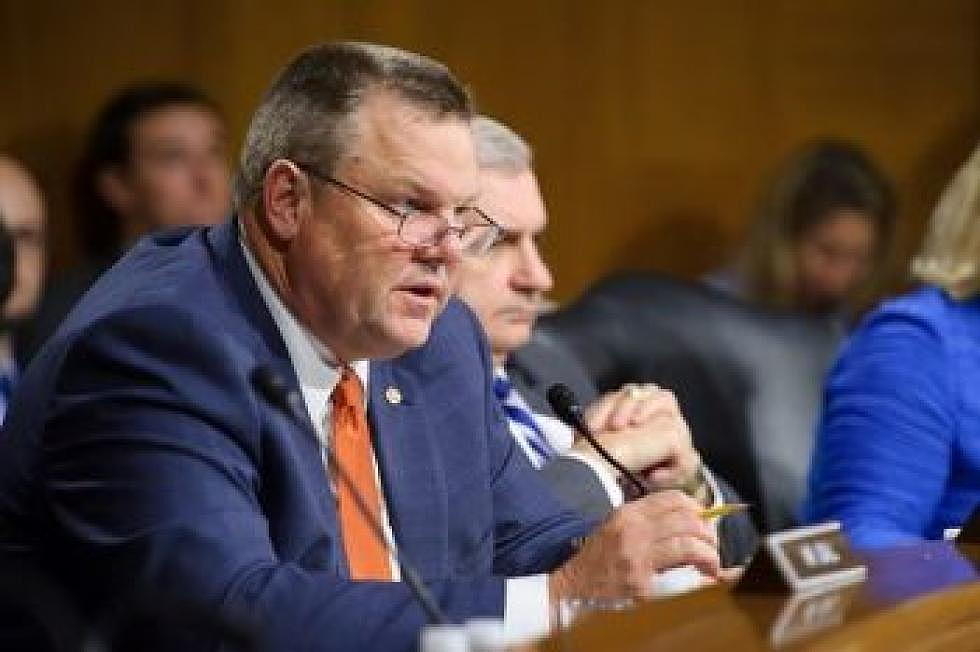
Tester bills boost VA funding, pay for larger patient clinic in Missoula
For now, Sen. Jon Tester said, Montana veterans can celebrate.
A suite of bills passed by the U.S. Senate on Tuesday night will inject needed funding into the struggling Choice Program and give the Community Based Outpatient Clinic in Missoula money to expand.
The measures will also help the VA confront its growing patient backlog by addressing the recruitment and retention of VA workers. It also lets veterans choose the disability appeals option that works best for them.
Tester, who crafted the bills as a ranking member of the Senate VA Committee, expects the president to sign both measures.
“It's the final step, in some cases, of years of work,” Tester told the Missoula Current on Wednesday morning. “We were able to get some positive things done to build the VA's capacity, whether it's leases or whether it's expedited hiring, or making sure they can boost salaries for physician assistants, and there's Choice stuff too. We're heading in the right direction.”
Over the past few months, Tester sat down with veterans in Billings and Missoula to hear their concerns, particularly those related to the Choice Program and the need to build the VA's capacity as a new wave of veterans, including more women, turn to the agency for care.
Of the two measures, which provide nearly $2.1 billion in funding, the Veterans Appeals Improvement and Modernization Act gives the VA the resources it needs to process claims faster and more accurately, cutting through the red tape that has bogged down the system and left many vets saying it was too complex.
The second measure, known as the VA Choice and Quality Employment Act, provides emergency funding to the Choice Program and sets aside more than $1 billion for VA leases. That, Tester said, will fund the expansion of the outpatient clinic in Missoula.
“It's really critically important that that Missoula (clinic) gets addressed,” Tester said. “(Former VA Secretary Robert) McDonald was there two years ago. He looked at it and it was like a sardine can. We need more clinical space to serve our veterans because we're seeing incredible growth in the region. We were able to do that in this bill.”
Tester said the legislation survived a number of challenges before passing with bipartisan support. Among them, some sought to pull funding from the VA and redirect it to the Choice Program.
But input from veteran service organizations, among others, helped keep the legislation on track and pass in its current form. Tester said he also worked with Sen. John Isakson, R-Georgia, to defeat efforts that would have diminished funding to build the VA's health care capacity.
“When this Choice bill started out, the House was on the cusp of passing a bill that was strictly Choice and didn't address any of the capacity issues at the VA,” Tester said. “We were able to pull that back. The VA is where veterans want to get their health care. We were able to force the issue to get more dollars for capacity building into the VA, and that was really important.”
The House passed the funding bill 414-0, according to the Washington Examiner.
Despite the legislative success, Tester said challenges remain, including the need to streamline the Choice Program and make it more cost effective.
Congress adopted the program in 2014, lauding it as a way to better fund and reform the VA by allowing veterans to receive care outside the system under certain conditions, like when certain health-care services aren't provided or when a veteran lives too far away from a VA clinic.
Well meaning as it was, Tester and other VA leaders believe the program has fallen short of achieving its goals, leading some to consider privatizing the system entirely. Tester remains opposed to that effort, saying it would be bad for veterans.
“We need to make sure the clinical decisions are made by a VA doc and the vet,” Tester said. “But a lot of people around here, including the president, are saying give them a card and let them go wherever they want. That's not going to serve the veterans well in the long haul. That's what the veteran service organizations have told me.”
Tester fears that such privatization efforts would also break the budget. He believes fixing Choice remains the preferred option.
“We've got to figure out how to streamline Choice so it becomes more cost effective,” he said. “Right now it's not doing what it needs to do. That's going to be the next negotiation point going forward, and hopefully we can get something out by October or November.
“The bills we're passing here are able to keep the Choice program static from a monetary standpoint and build capacity in the VA itself. That's what we got done. We're not privatizing the VA, but allowing the Choice program to fill in the gaps.”
